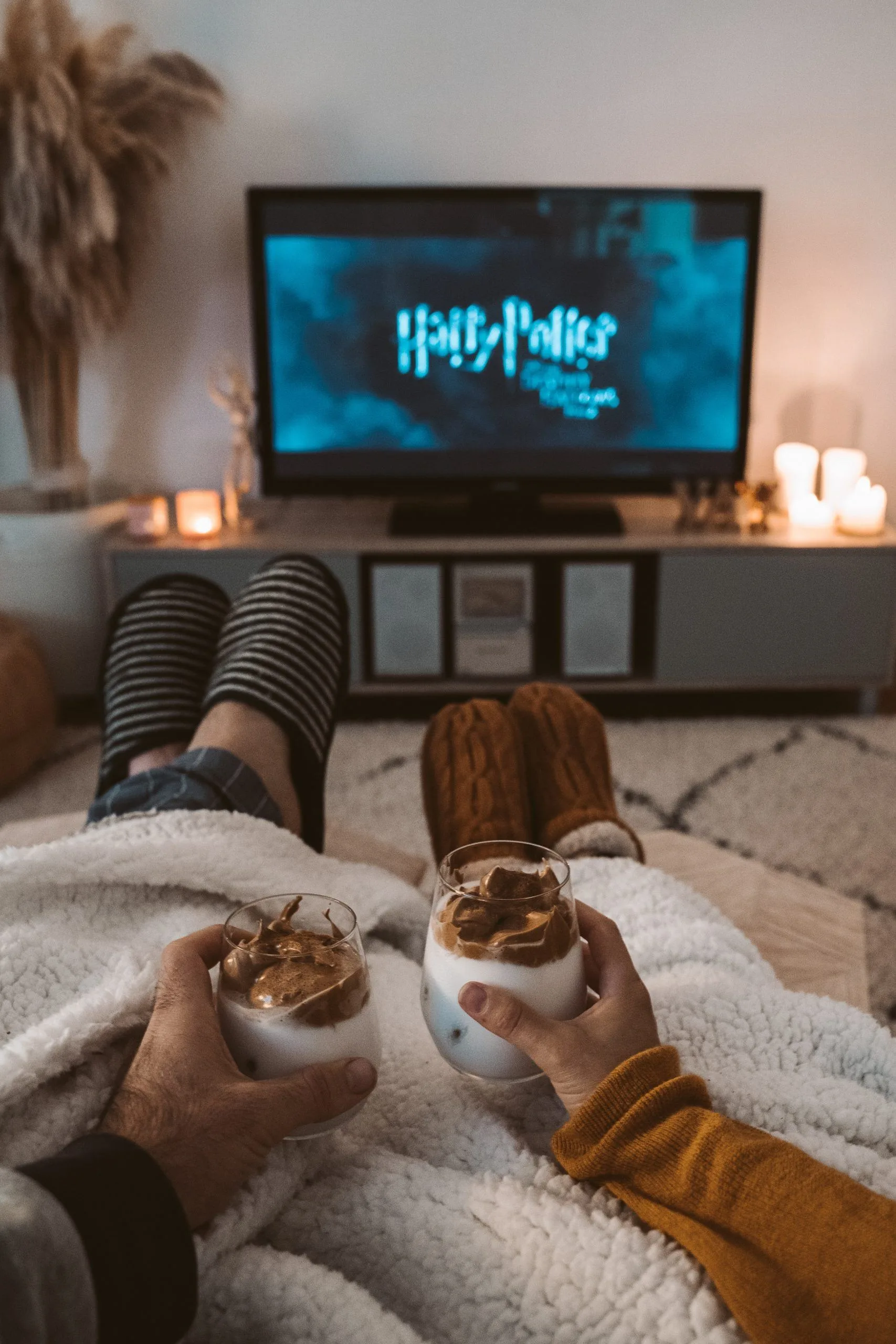The holiday season falls right in the winter months for the northern hemisphere. And when it’s cold outside, it can be tempting to avoid going outside. There seems to be nothing better than snuggling up in front of the TV and bingeing all your festive favorites. With so many options these days, the options when it comes to what to watch are almost endless. But too much screen time isn’t good for anyone. And spending too much time on your couch can have some pretty negative effects on your health. So will you be limiting your screen time this festive season? If so, how can you do it?
Decreasing screen time isn’t just for kids
 When we talk about screen time and managing it, we’re often referring to children. However, too much screen time can also have severe and negative impacts on adults. Over the festive season, we feel that we have an opportunity to finally relax. This can lead us into a vicious cycle of bingeing series and movies that we feel we’ve missed out on due to work pressure or time constraints during the year. According to Reid Health, just a few years ago, the average screen time for adults in the USA was 11 hours per day.
When we talk about screen time and managing it, we’re often referring to children. However, too much screen time can also have severe and negative impacts on adults. Over the festive season, we feel that we have an opportunity to finally relax. This can lead us into a vicious cycle of bingeing series and movies that we feel we’ve missed out on due to work pressure or time constraints during the year. According to Reid Health, just a few years ago, the average screen time for adults in the USA was 11 hours per day.
This is immense but somewhat understandable given that the study included looking at your computer during the day for work as well. However, recently, that number has grown exponentially. It seems that the pandemic has caused us all to become completely attached to our screens.
The average screen time for adults in the USA now sits at 19 hours per day. Given that there are only 24 hours in a day, that means that we spend way too much time staring at screens of various sizes. Reid Health reports that about 30 percent of adults say they’re online “almost constantly.”
Lowering screen time could improve your physical health
Often, we become rather stuck to our devices. And whilst snuggling up on the couch in front of Netflix is definitely good for you occasionally, doing it every day is not the best idea. Typically, we prioritize time on our devices over almost anything else. All this time spent on one of your many devices can significantly cut into the time when you should be getting some exercise or going outside for some fresh air.

Photo by JESHOOTS.com from Pexels
Cutting down on screen time can help to reduce your risk of things like diabetes type 2, heart disease, and obesity. It is proven that both children and adults that watch a lot of TV are at greater risk of weight gain and, ultimately, becoming overweight. This is mostly because, when you’re in front of the TV, you’re more likely to snack frequently and eat mindlessly.
When you spend less time in front of the TV or computer, it’ll likely influence you positively and encourage better habits. You’ll likely use the time you do spend in front of the TV more mindfully and enjoy it more. Watching too much TV can also cause difficulty falling asleep and mean you don’t feel well-rested.
What are the negative effects of too much screen time?
- Insomnia and sleep: Too much screen time can affect your brain’s ability to stay awake. It can also make it difficult to fall asleep.
- Headaches and eye strain: Staring at a screen for a long time can strain your eyes and cause headaches. Aside from reducing your vision, the brightness of screens can also put a strain on your eyes.

Photo by JESHOOTS.com from Pexels
- Device addiction: Studies have revealed that many people develop addictive behaviors when they use social media and smartphones. Many of us have developed a dependence on our smartphones and social media platforms.
- Cognitive changes: A study conducted in 2020 linked smartphone overuse to a part of the brain that’s responsible for processing information. The study found that people with an addiction to smartphones and devices had, in general, lower cognitive performance.
So, how much is too much?
When it comes to kids, there are definite guidelines for how much screen time is safe and how much is too much. However, for adults, these guidelines simply don’t seem to exist. Whilst there are no clear guidelines, what is clear is that too much screen time is dangerous and detrimental to your health.
One study found that spending 6 or more hours a day in front of a screen could put you at a higher risk of developing depression. But limiting the use of social media use to 30 minutes per day leads to a “significant improvement in well-being”. Most experts recommend that adults should limit screen time to 2 hours a day (or less) outside of work.
References
https://guardian.ng/guardian-woman/how-to-limit-screen-time-during-this-holiday/






![women [longevity live]](https://longevitylive.com/wp-content/uploads/2020/01/photo-of-women-walking-down-the-street-1116984-100x100.jpg)










